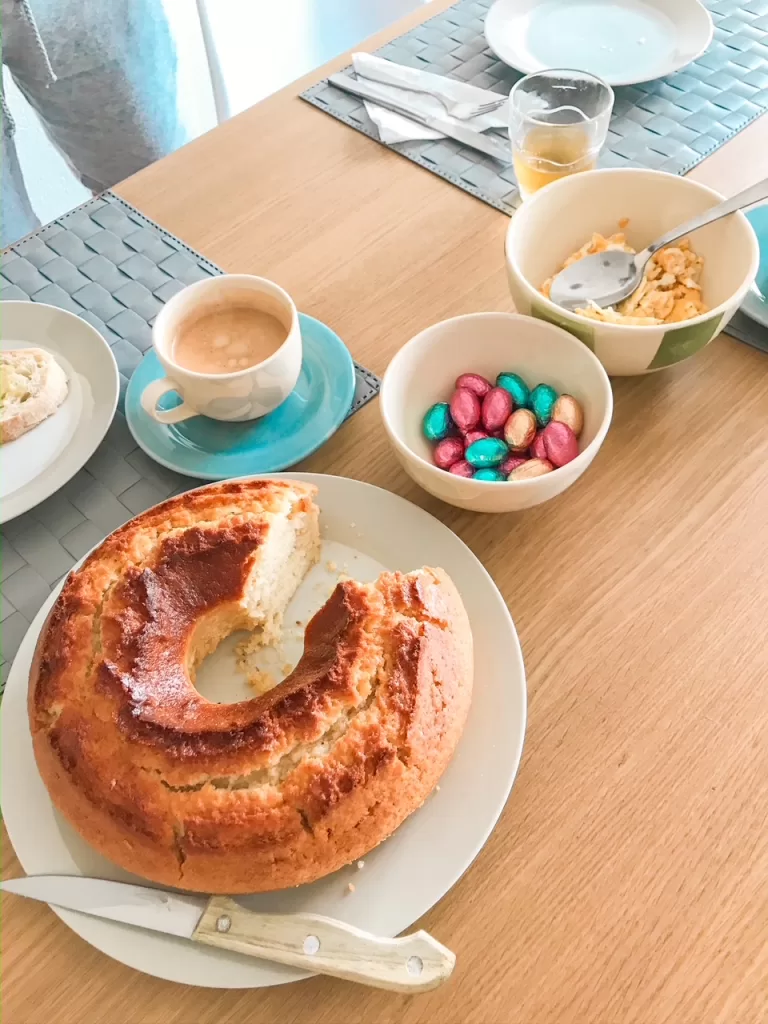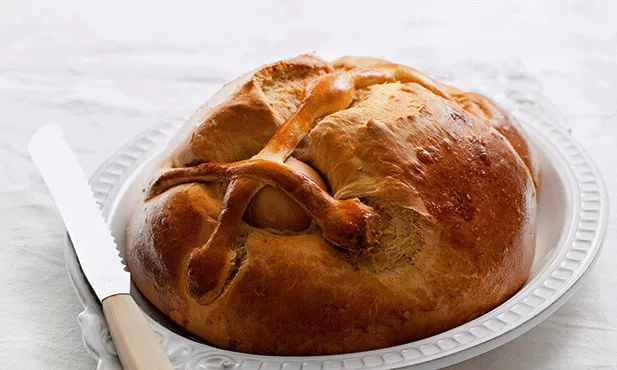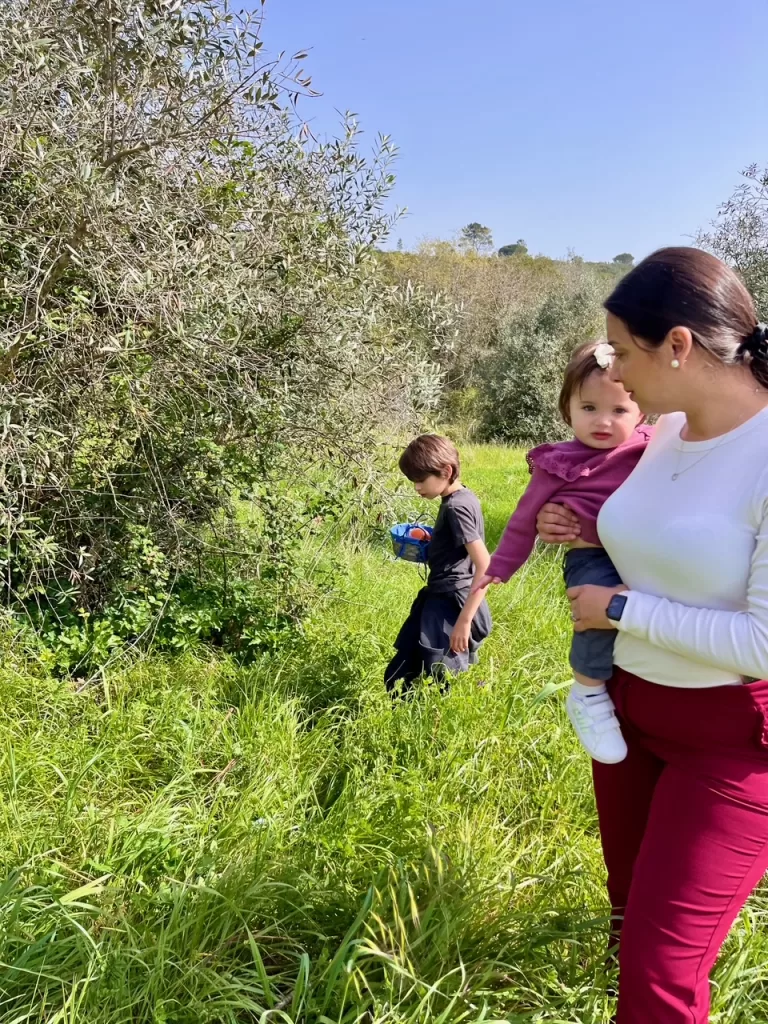
Traditional Easter Celebrations in Portugal — it’s not just a holiday, it’s a deeply meaningful celebration rooted in faith, family, and centuries-old traditions. As someone raising a family here, I’ve come to really appreciate the way the Portuguese honor this time of year. From solemn processions to joyful family meals, there’s something beautifully heartfelt about Easter in Portugal.
Aside from Summer and Christmas, Easter has the longest school break with about 15 days off for the kiddos.
Whether you live here or plan to visit during Holy Week, here’s what you can expect from traditional Easter celebrations in this vibrant and faith-filled country.
Traditional Easter Celebrations in Portugal
Holy Week (Semana Santa): A Time of Reflection and Ritual
Easter celebrations in Portugal begin long before Easter Sunday. The entire week leading up to it—known as Semana Santa (Holy Week)—is a time of religious observance and reflection.
Many towns and cities host elaborate processions throughout the week. One of the most famous takes place in Braga, often called the “Portuguese Rome.” Here, the streets fill with solemn parades, incense, and traditional hymns as people reenact scenes from the Passion of Christ. Participants often wear robes and hoods in the style of historical penitents.
These processions aren’t tourist shows—they are heartfelt, often emotional displays of faith that bring communities together. Since we’re not Catholic, we haven’t attended the many services and processions that happen countrywide but I believe it’s still worth seeing/participating in.
Good Friday (Sexta-feira Santa): A Day of Reverence
Good Friday is a national holiday in Portugal and one of the most solemn days of the year. It commemorates the crucifixion of Jesus Christ, and the mood throughout the country reflects that.
Many families attend church services, and meat is traditionally avoided on this day. Instead, meals might include fish like bacalhau (salted cod) or other simple dishes. In some towns, like Óbidos or Guarda, you can witness traditional Via Sacra (Stations of the Cross) processions that move through the narrow cobblestone streets.
I’ve noticed how even modern, busy families take a moment on Good Friday to pause and reflect. It’s a day that slows the pace of life and invites introspection.
Easter Sunday (Domingo de Páscoa): A Joyful Celebration
If Good Friday is solemn, Easter Sunday is full of joy. It marks the resurrection of Christ and is celebrated with family gatherings, festive meals, and of course, a trip to church.
Most families attend a morning Mass, followed by a large lunch that usually includes cordeiro assado (roast lamb), cabrito (goat), or sometimes turkey. Sides often include potatoes, rice, and lots of leafy greens. Traditional Portuguese sweets like pão-de-ló (a fluffy sponge cake) and aletria (sweet vermicelli pudding) are also popular at the Easter table.
And then there’s the folar.
Folar: The Star of Portuguese Easter Baking
Folar is a traditional Easter bread that symbolizes friendship, reconciliation, and resurrection. Depending on where you are in Portugal, folar might be sweet or savory.

In the North, folar often includes cured meats like presunto (Portuguese ham), linguiça, or chouriço. In the South and Central regions, you’ll find sweet folar—a slightly spiced, brioche-like bread often adorned with a hard-boiled egg nestled in the center (shell and all!).
It’s common for godparents to give folar to their godchildren as a gift on Easter Sunday, reinforcing the theme of love and connection within families and communities.
In a previous year, I tried baking sweet folar at home with my kids. The smell alone—a mix of cinnamon, orange zest, and warm dough—was worth the effort, although I’m not sure how well ours turned out.
Easter Eggs and Modern Touches
While not traditionally Portuguese, large chocolate eggs and bunnies have become more popular in recent years. Most grocery stores stock colorful Easter treats, and kids are starting to enjoy egg hunts and chocolate gifts, much like in the U.S. or U.K.
Still, the focus remains less commercial and more about family, faith, and food.
In our home, we do a little of both. Growing up in Brazil, our parents always gave us chocolate eggs during Easter, and it continued in the U.S. as my parents own a Brazilian Grocery Store.
My kids love a good chocolate egg, we try to always do an egg hunt for the kids (although this year we might have to take it indoors with the nonstop rain) but we also make time for reflection, storytelling, and baking something meaningful.
Regional Easter Variations Across Portugal
One of the things I love about living in Portugal is how diverse it is from region to region, even when it comes to celebrating the same holiday.
- Braga: Known for its elaborate Holy Week festivities. Processions here are some of the most dramatic and well-attended in the country.
- Évora and Alentejo: Easter is often celebrated with regional dishes and wine. The countryside comes alive with local festivals.
- Madeira: Easter is colorful and celebratory, with an emphasis on music and dance.
- The Algarve: You might find more relaxed, seaside celebrations, but still rooted in tradition.
- Lisbon: Churches across the city hold special services, and you can visit historic monasteries and cathedrals for a glimpse of centuries-old architecture and art.
Traditional Easter Celebrations in Portugal -Why Easter in Portugal Feels Special
What makes Easter here so unique, in my view, is the balance between reverence and celebration. It’s not over-commercialized. It’s not rushed. Whether you’re at a small village church or a grand cathedral, the sense of community and spiritual reflection is always present.


As a family, we’ve begun creating our own blend of traditions. A mix of Brazilian, American, and now Portuguese customs. We plan on attending a local church service, and who knows maybe I’ll attempt to bake sweet folar, but we’ll definitely share a big meal with family. And as always, we take a moment to appreciate the season of renewal—both spiritual and seasonal.
Also, if you’re an immigrant in this country like I am, check out your local Facebook groups – people usually tend to make communal celebrations – I know our local immigrant parents hold an Easter egg hunt yearly.
Whether you’re visiting Portugal for the first time or have lived here for years, experiencing Easter through Portuguese traditions is a beautiful way to connect with the country’s soul.
Have You Celebrated Easter in Portugal?
I’d love to hear about your own Easter traditions or experiences in Portugal. Do you have a favorite folar recipe, especially a savory one – I’d love to try that? A procession that moved you deeply? Traditional Easter Celebrations in Portugal you’re particularly fond of?
Let me know in the comments or share your story on Instagram and tag me!
Wishing you and your family a joyful and peaceful Easter season. ✨
Read next: Why I’m not making Easter Baskets this year

Leave a Reply